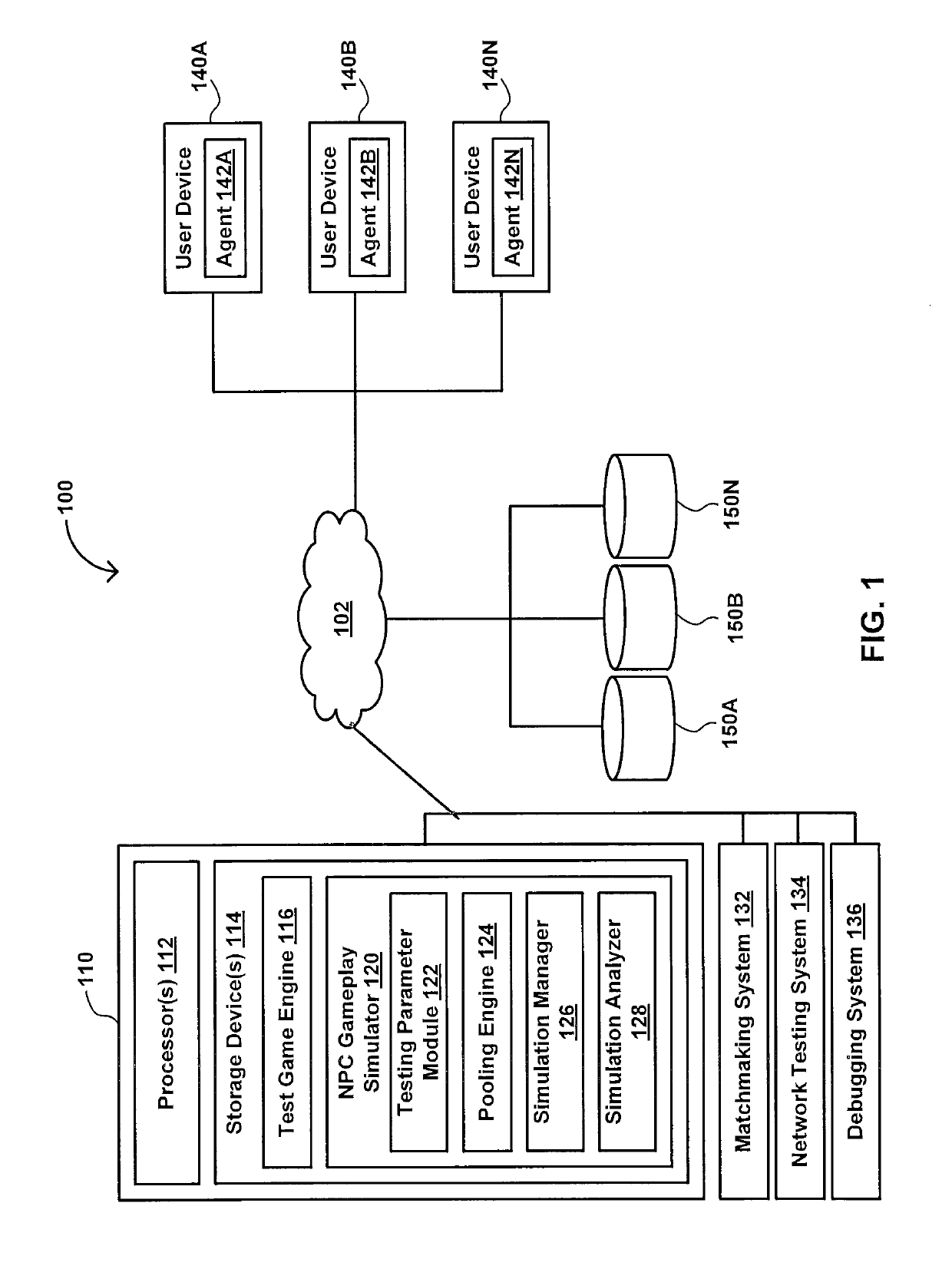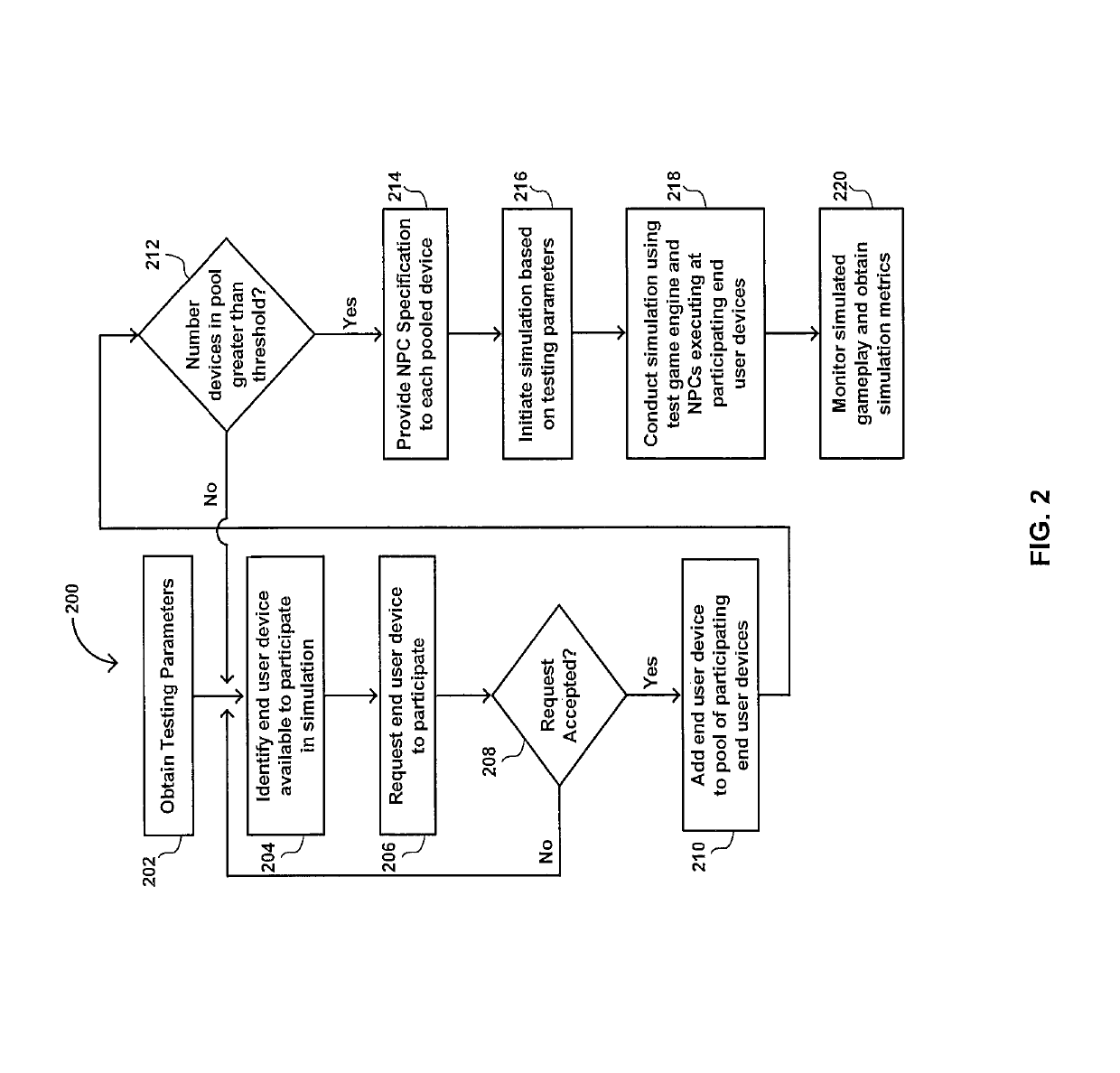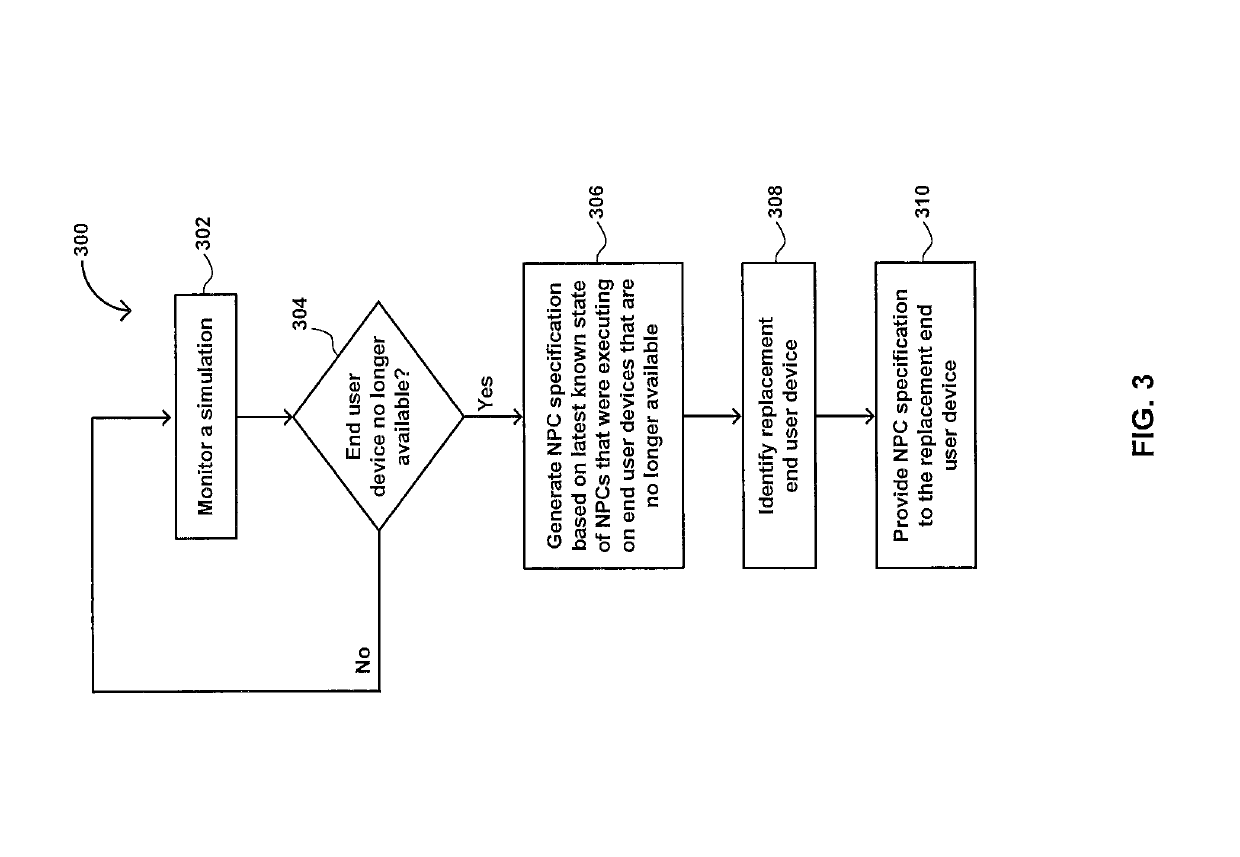System and method for simulating gameplay of nonplayer characters distributed across networked end user devices
a networked end user device and game system technology, applied in the field of system and method of simulating gameplay of non-player characters distributed across networked end user devices, can solve the problems of difficult to simulate the coordination of end user devices involved in networked video games, test the suitability of npc matches, and test such designs. , to achieve the effect of reducing the computational load required to participate, efficient simulation of gameplay, and facilitating network testing
- Summary
- Abstract
- Description
- Claims
- Application Information
AI Technical Summary
Benefits of technology
Problems solved by technology
Method used
Image
Examples
Embodiment Construction
[0022]The invention described herein relates to a system and method of simulating gameplay of non-player characters distributed across networked end user devices. The system may identify end user devices that are connected to the system through a network and are available to participate in a simulation in which each participating end user device is provided with one or more NPCs to be executed. An end user device may be available to participate when it has sufficient computing capacity, such as when in an idle or standby state or during “low load” conditions like when a player is waiting in an online lobby or browsing an online marketplace. As such, the system may leverage spare computing capacity of networked end user devices to execute NPCs at networked end user devices during a simulation. In this manner, the behavior of an NPC may be tested using real-world conditions that may affect gameplay, such as a network connection quality, user-to-user game engine coordination and data e...
PUM
 Login to View More
Login to View More Abstract
Description
Claims
Application Information
 Login to View More
Login to View More - R&D
- Intellectual Property
- Life Sciences
- Materials
- Tech Scout
- Unparalleled Data Quality
- Higher Quality Content
- 60% Fewer Hallucinations
Browse by: Latest US Patents, China's latest patents, Technical Efficacy Thesaurus, Application Domain, Technology Topic, Popular Technical Reports.
© 2025 PatSnap. All rights reserved.Legal|Privacy policy|Modern Slavery Act Transparency Statement|Sitemap|About US| Contact US: help@patsnap.com



